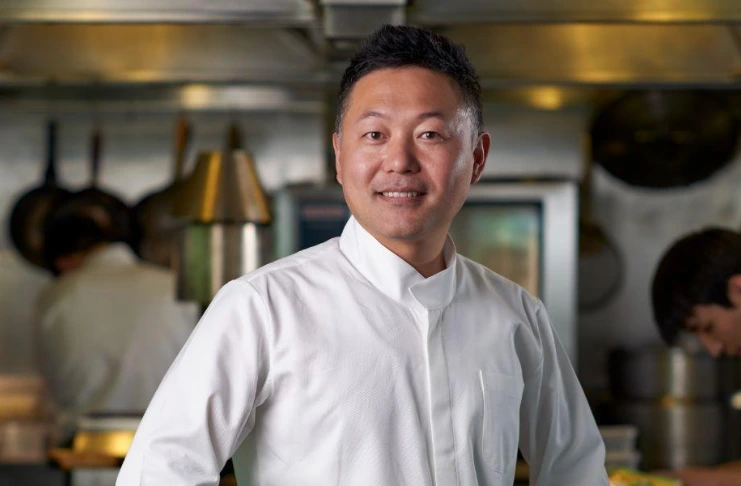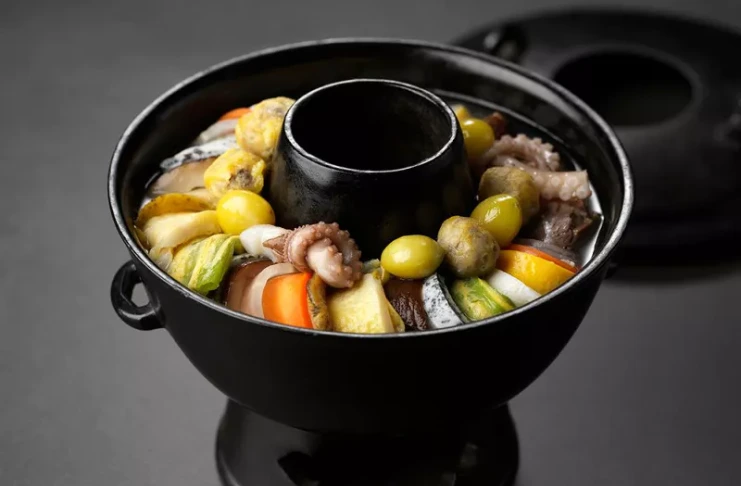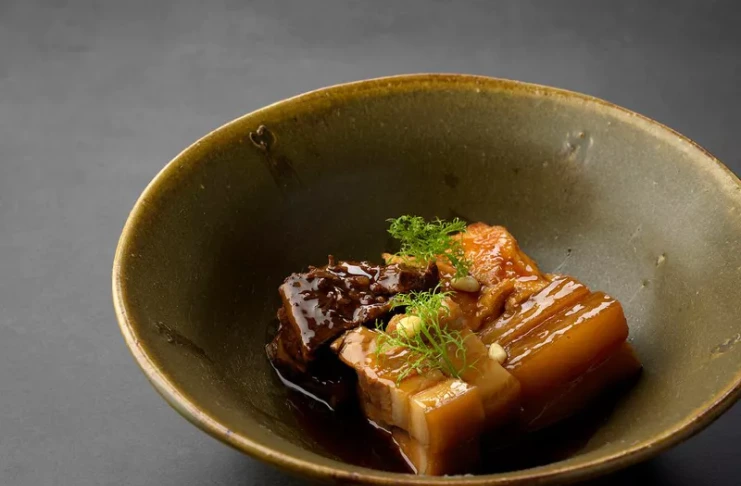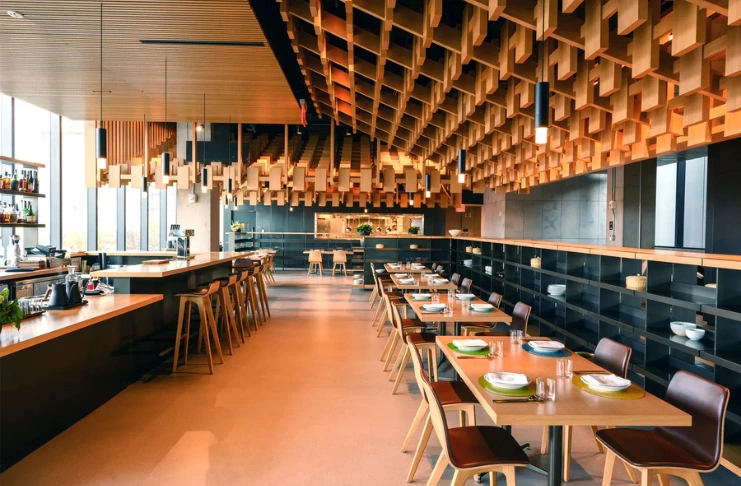In the shadow of Seoul’s ancient Gyeongbokgung Palace, where centuries-old stone walls whisper secrets of royal banquets, a modern revolution quietly unfolds. Here, the art of “creating in the right way” — onjium in Korean — transforms dusty historical manuscripts into living, breathing culinary poetry.
This is not merely a restaurant. It is a cultural laboratory where the ghosts of Joseon dynasty royalty meet contemporary Seoul, where fermented mysteries unlock flavors lost to time, and where every dish carries the weight of a thousand-year heritage.
The Cultural Architects

At the helm stands Chef Cho Eun-hee, one of only three women to command a Michelin star in South Korea — a distinction that barely captures her true significance. She is not simply a chef but a cultural archaeologist, certified in the sacred arts of Korean royal court cuisine, designated as an intangible cultural asset by the Korean government. Alongside researcher Park Seong-bae, she operates at the intersection of scholarship and gastronomy, where ancient recipe books become blueprints for edible time travel.
Their domain extends far beyond the kitchen. Since 2013, Onjium has functioned as a comprehensive cultural research institute, housing three studios dedicated to Food, Clothing, and Housing. This trinity of Korean cultural expression creates something unprecedented in the culinary world — a restaurant that serves not just meals, but memories, traditions, and forgotten stories on porcelain plates.
The Fermentation Philosophy
Deep within Onjium’s modern concrete and steel sanctuary, time moves differently. In temperature-controlled chambers, doenjang, gochujang, and ganjang — the holy trinity of Korean fermentation — age with monastic patience. These are not mere condiments but liquid libraries, each jar containing centuries of accumulated wisdom, bacterial cultures passed down through generations like family heirlooms.
The fermentation process here transcends technique, becoming philosophy. Every bubble, every transformation speaks to Korea’s fundamental understanding that the best things cannot be rushed, that complexity emerges from patience, and that tradition requires both preservation and evolution to survive.
The Royal Resurrection

Each dish at Onjium represents an act of culinary necromancy, breathing life into recipes that once graced the tables of Korean royalty. Suranchae, a noble family delicacy from Gyeongju, arrives as an underwater garden — chilled abalone, crab, and octopus crowned with Korean pear and a perfectly poached egg, bathed in pine nut elixir. This is not fusion cuisine but resurrection cuisine, where historical accuracy meets contemporary sensibility.
The kitchen operates like a historical recreation society with Michelin-star precision. Traditional techniques are studied, deconstructed, and rebuilt using seasonal ingredients that honor both the original intent and modern palates. Neobiani transforms premium Wagyu through marinades that echo royal court methods, accompanied by spring vegetables that sing of Korea’s agricultural rhythms.
The Temple Influence
Chef Cho’s mastery extends beyond royal kitchens to embrace Korean Buddhist temple cuisine, creating a unique culinary philosophy that honors both opulence and asceticism. This duality manifests in dishes that achieve maximum impact through minimal intervention, where the purity of ingredients is enhanced rather than masked, where each component serves both nutritional and spiritual purposes.
The influence of temple cuisine brings meditative precision to every preparation, transforming the dining experience into something approaching ritual. Diners seated at the counter witness this culinary choreography, observing the transformation of humble ingredients into transcendent experiences through techniques refined over centuries.
The Cultural Transmission

Onjium’s mission extends far beyond individual dining experiences. Monthly Korean history and culture classes transform the restaurant into an educational sanctuary where tradition transfers from one generation to the next. These sessions represent cultural conservation in its purest form — not museum preservation but living transmission.
The restaurant’s delivery brand, Onharu, democratizes access to these refined traditions, bringing carefully crafted banchan to Korean homes twice monthly. This initiative ensures that royal court techniques and temple-influenced preparations reach beyond fine dining exclusivity, maintaining cultural relevance through accessibility.
The Global Ambassador
International recognition has transformed Onjium into Korea’s unofficial culinary ambassador. Their collaboration with Genesis House Restaurant in New York’s Meatpacking District exports authentic Korean royal cuisine to global audiences, proving that traditional techniques can transcend cultural boundaries without losing their essential character.
This global expansion represents more than business growth — its cultural diplomacy through gastronomy, introducing international palates to the sophistication and complexity of Korean culinary heritage while maintaining unwavering authenticity standards.
The Alchemy of Recognition
Michelin’s one-star recognition and Asia’s 50 Best Restaurants ranking validates Onjium’s unique approach, but these accolades merely confirm what insiders have long known — this is Korean cuisine’s most important cultural project. Here, preservation and innovation dance together, creating experiences that honor the past while defining the future.
The World’s 50 Best Discovery program’s inclusion recognizes Onjium’s significance beyond culinary excellence, acknowledging its role as a cultural institution that uses gastronomy as a vehicle for heritage preservation and transmission.
The Living Legacy of Onjium Seoul

Onjium represents the evolution of cultural preservation from static museum display to dynamic, living practice. By transforming historical research into contemporary dining experiences, it proves that tradition need not be trapped in amber but can continue growing, adapting, and inspiring new generations.
In an age where globalization threatens cultural distinctiveness, Onjium stands as proof that authenticity and innovation can coexist, that respect for tradition can fuel rather than constrain creativity, and that the most powerful way to preserve culture is to make it irresistibly relevant to contemporary life.





